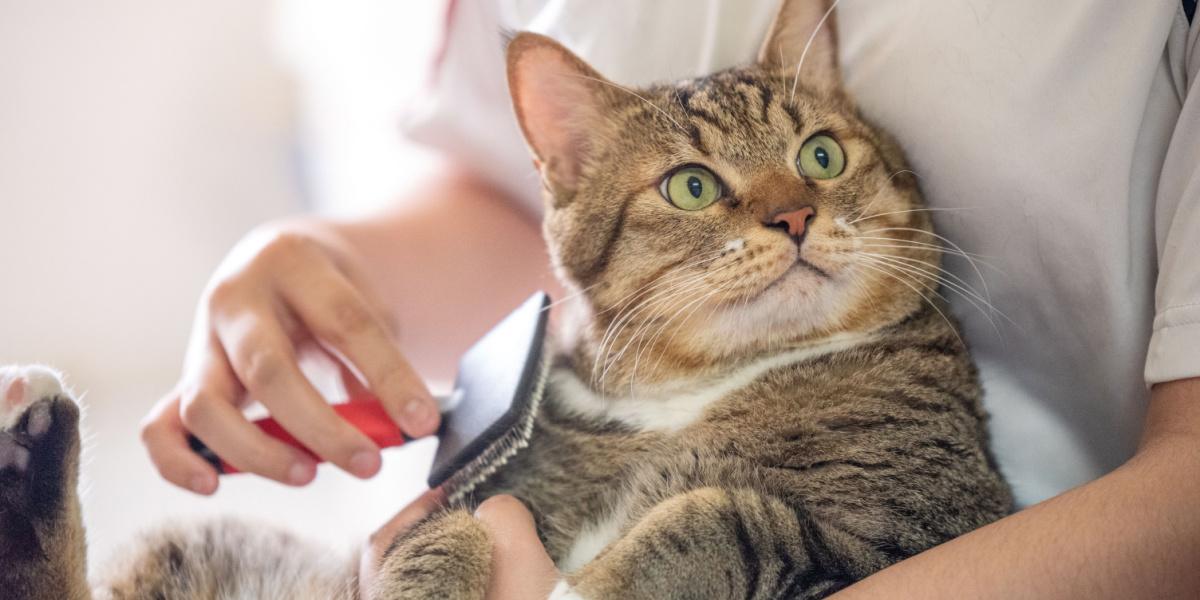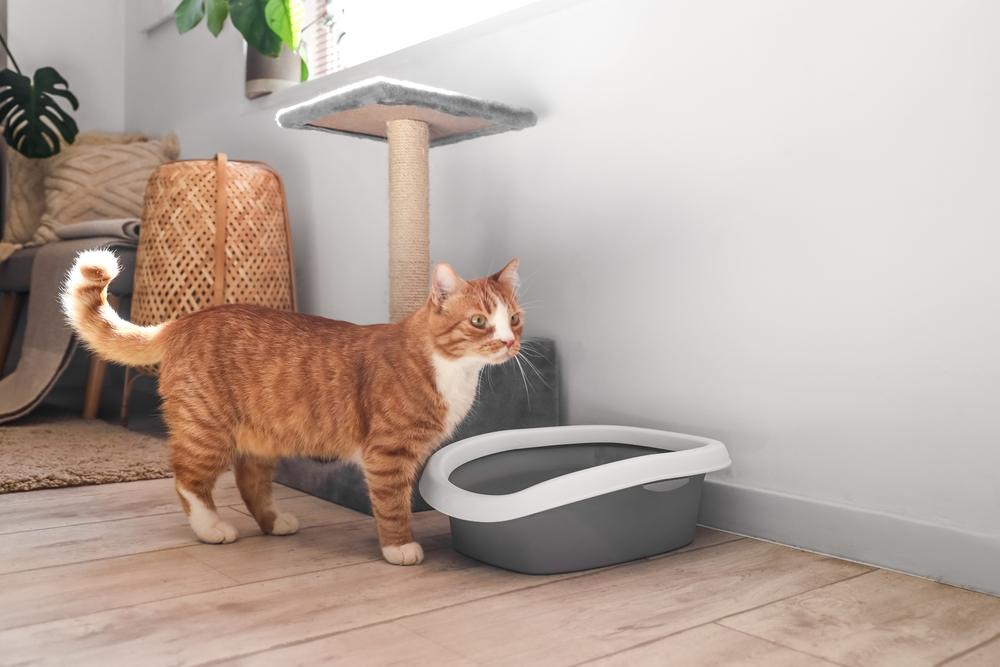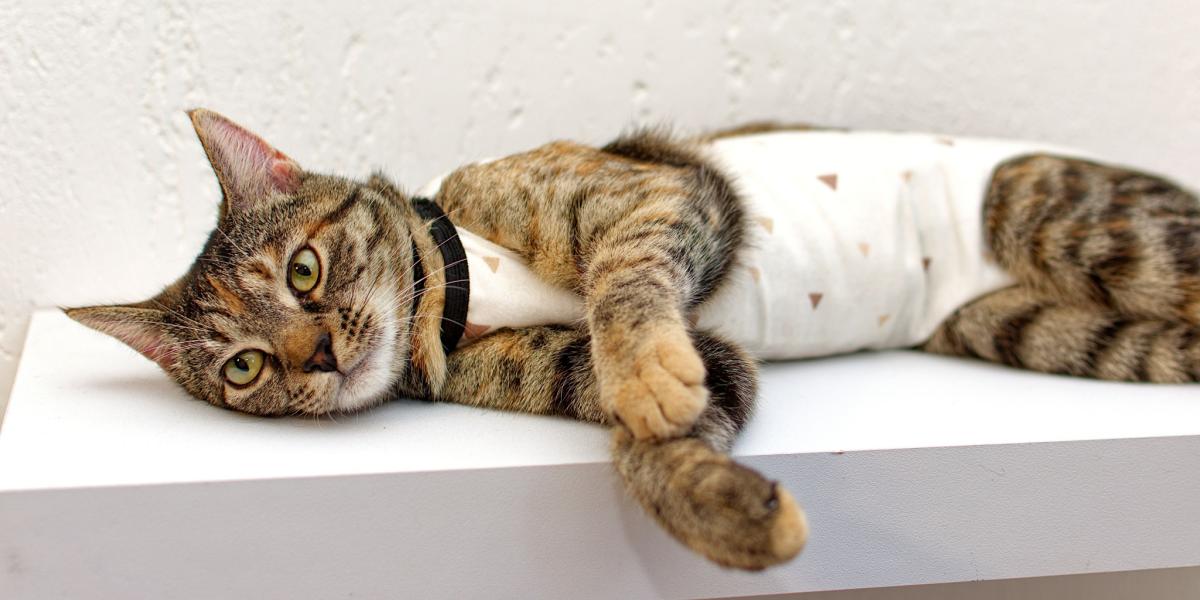
Caring for a cat for the first time might feel a bit daunting. There’s a lot to think about, including what you’re going to feed them, which veterinarian you’re going to choose, and what gear you need to buy.
In this guide, we’ll provide you with some useful advice about the most important things to consider when caring for your new family member as a first-time cat parent. Here are our top 10 key rules to follow:
1. Help Your Cat Settle In
Your cat might be a little scared and timid when you first bring them home. The car journey, a new environment, new people, and possibly new animals is a lot of adjustment for a cat.
Consider using a Feliway diffuser, which releases “happy” pheromones into the environment. These pheromones help cats feel safe and secure by mimicking the pheromones that are naturally released by your cat when they rub their face on things. You can also use Feliway spray in your cat’s carrier to help calm them during transport.
Your house might seem a bit daunting to your new cat at first, so initially just allow them access to one or two rooms. Gradually allow access to the rest of your house as your cat becomes more confident in their surroundings. If you intend for your cat to go outdoors, do not allow them outside until you are sure they are settled in your home. This could take several weeks.
Let your cat to explore their new surroundings on their own terms. Sit quietly with your cat and allow them to approach you in their own time. Cats require gentle handling so as not to frighten them. Don’t scare your cat by grabbing them for a cuddle. It will take time for your new cat to trust you, so be patient and take things slowly. Offering treats can help encourage your cat to come to you and acts as a reward for their confidence.
2. Feed A Complete Cat Food
With hundreds of foods to pick from, choosing what to feed your cat can be overwhelming. We’ve picked out a few key points to help you:
- Choose a complete and balanced cat food. This ensures that your cat will receive the correct balance of nutrients from a single food source.
- Choose the correct food for your cat’s age and life stage. A kitten’s nutritional requirements are very different from those of an adult cat, and an elderly cat’s requirements are different again.
- Decide whether to feed wet food, dry kibble, or both. This might come down to your cat’s personal preference. Some cats prefer one or the other, and some cats enjoy the variety of both.
- Measure out your cat’s food. This will help prevent your cat from overeating and gaining too much weight.
- Provide free access to clean water. Ideally, have more than one water bowl in different locations around the house to encourage your cat to drink plenty of water.
Also Read: The 8 Best Cat Water Fountains—And We Tested Them All
3. Choose Suitable Litter Boxes And A Scratch Post

Provide at least one litter box per cat in your house, plus one extra.
Your cat will need litter boxes in the house, even if you intend to let them outside eventually. You should provide at least one litter box per cat in the household, plus one extra in a different location.
Make sure that the box is big enough for your cat and is placed somewhere quiet and private. If you have an elderly cat with arthritis, choose a litter box with low sides so that they can easily get in and out of the tray.
You might need to try out a few different litter substrates to find one your cat prefers. For adult cats, try to stick with the same litter that they have previously been used to.
Scratching is an important behavior that allows your cat to keep their claws in tip-top condition. Ensure that your cat has a scratching post that is tall enough so they can fully stretch out their body when scratching. Some cats prefer to scratch horizontally and might prefer a scratching box or mat.
4. Provide A Safe Place For Your Cat To Sleep
Cats generally prefer sleeping up high as this is where they feel safest. Provide your cat with somewhere quiet to rest, away from the main hustle and bustle of the household or any noisy kitchen appliances such as washing machines.
There are lots of different types of cat beds to choose from, from enclosed beds to open ones. It might be a case of trial and error to find out which type your cat prefers. Your cat will probably choose for themselves where they wish to sleep so try moving your cat’s bed to this location to encourage them to use it.
5. Play With Your Cat
Cats love to play, and playing with your cat helps to build a strong bond between you. Cats have very strong hunting instincts, and play provides them with an outlet for this behavior. Play is especially important for indoor cats to ensure that they do not become bored and frustrated.
Schedule regular play times into your day but keep play sessions short so that you don’t exhaust your cat. A variety of good toys for cats are available in pet stores, but you don’t need to spend a lot of money. Cats are often just as happy playing with a scrunched-up ball of paper or the inside of a toilet paper roll as a store-bought toy. Some cats like playing with laser pointers, but others become frustrated that they cannot “catch” the light. You can help make laser play more enjoyable by shining the light onto an actual toy for them to pounce on.
6. Choose A Veterinarian
You will need to register with a nearby veterinary clinic so that you can access health care for your cat, including preventative care such as vaccinations and parasite control to prevent your cat from becoming infested with parasites such as fleas or worms.
Taking your cat for regular checkups is an important part of owning a cat. Also find out where you can take your cat in an emergency or if they are unwell outside normal business hours.
Also Read: How To Take Care Of A Kitten: The Complete Guide
7. Spay Or Neuter Your Cat

Spaying or neutering your cat prevents unwanted pregnancy and eliminates many behavioral issues.
It is important to spay or neuter your cat to prevent an unwanted pregnancy. Spaying females also reduces the risk of mammary cancer and womb infections, among other health benefits. Neutering males helps reduce the risk of them roaming to try and find a female mate. It also helps to prevent them from spraying in the house as well as fighting with other male cats.
Some kittens are spayed or neutered before you bring them home from the animal shelter. Otherwise, kittens are usually spayed or neutered from around 4 months old. Speak to your veterinarian, who will be able to provide you with more information.
8. Ensure Your Cat Is Microchipped
Microchipping is your best chance of being reunited with your cat should they become lost. Microchipping is quick and easy to do and is no more painful for your cat than receiving an injection.
If you have adopted an adult cat, find out whether or not they are already microchipped. If they are, make sure your change the contact details over to you. Ensure that your contact details are kept up to date, and ask your vet to check that your cat’s microchip is still working at each appointment.
Also fit your cat with a collar with an ID tag with your details on it. Make sure that it is a quick-release collar to prevent your cat from getting its collar stuck anywhere.
9. Choose A Suitable Pet Insurance Policy
Pet insurance is designed to give you peace of mind that you can pay for any unexpected vet visits. Because there are so many cat insurance policies to choose from, it can be a bit of a minefield. Be aware that there are several different types of coverage available. Read the small print to make sure you have selected the best one for you and your cat.
Check that the policy limit is sufficient for what your cat could need. Bear in mind that the cost of treating and medicating lifetime illnesses can mount up quickly, as can unexpected emergency veterinary treatments.
10. Keep An Eye On Your Cat’s Health
As you get to know your new cat, you will soon be able to quickly spot when something isn’t right. If your cat is more withdrawn than usual, not eating their food, or seems unwell, take them to the veterinarian as soon as you can to get them checked over. Cats with health problems can be very good at hiding signs of being unwell, so even if your cat seems only a little out of sorts, it is best to get them checked by a veterinarian, just in case.
Final Thoughts

Your special bond with your new cat will continue to grow for years to come.
Owning a cat is a big responsibility but is also extremely rewarding and a lot of fun. By following the advice above, you will help to keep your new cat happy and healthy. Looking after all of your new cat’s needs and spending quality time together means that you and your new cat will form a strong bond that will last a lifetime.
Also Read: New Cat Owner Anxiety: Why It Happens & How To Overcome It
Frequently Asked Questions
How much should I feed my cat?
How much you feed your cat will depend on many different factors, including the type of food you are feeding, and your cat’s age, body weight, and activity levels. All good cat foods will contain a feeding guideline on the package, but check with your veterinarian if you are unsure.
What should I do if my new cat is hiding?
It is normal for your cat to hide away when you first bring them home—it can be a scary time for them. Allow your cat time to adjust and explore their surroundings when they’re good and ready. Using treats can help encourage your cat to come out of hiding and approach you. Remember to be patient though!
When should I let my cat outside?
You should only let your cat outside once you are sure they are settled in their new home. This usually takes a minimum of three weeks but might be much longer in some cases. Ensure your cat is microchipped and wearing a collar with an ID tag, and let them out for short periods initially to get them used to coming back again.







